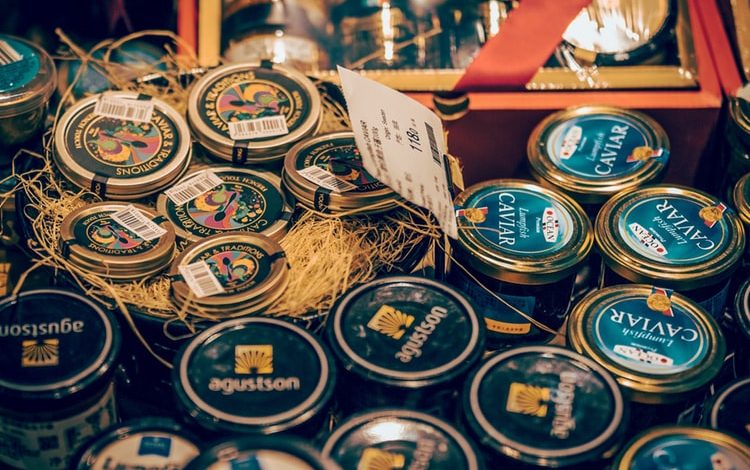Canned Beer Versus Bottled Beer: Where Canned Beer Wins

The canned beer versus bottled beer argument has gone on since the introduction of the former as a lighter alternative to the latter in 1935. At launch, it gained a wide recognition from reviewers and beer lovers, thanks to its portable packaging and environmental benefits. In fact, the test samples got about 91% approval rating, which led to further large-scale production of more canned beers.
However, several years down the lane, things took a different turn. Somehow, talks began to make rounds about the “metallic taste” which characterized canned beers. Proponents of this argument also claimed bottled beers are for “real men,” and sadly, the stigma stuck.
This is not to say that canned beers do not have some other issues apart from the alleged “metallic taste.” They do, and prominent among these issues is the case of BPA-ni used in replacing the popular BPA liner. Whereas the former is healthier, the latter is allegedly dangerous.
However, since canned beers can’t be all that bad, we have decided to research and make a post on the uniqueness of canned beers. In the end, the myths have waited far too long for people to burst them. And we discovered that canned beers have several advantages over bottled beers. You can read on to find out.
Cans are Good Insulators Against Sunlight
Rays from the sun are bad for beers. It causes oxidation in beers, which is responsible for the unpleasant flavor that some beers have. The choice of a green bottle is one of the reasons why some consumers dislike the flavor of Heineken beer. Usually, beer cans are made with aluminum, which is impervious to sun ray. And this makes them one of the most suitable containers for storing beer.
Cans Are Well Sealed
Usually, beers have a shelf-life of four months, regardless of the container. In that case, it does not matter if the cans are well-sealed or not as they able to maintain the same taste, look, and smell during this period.
However, after the fourth month of production, most bottled beers tend to undergo micro-oxidation due to minute openings between the cork and bottle. This process allows the inflow of air into the container, which will eventually affect the taste, look, and smell of the beer.
On the other hand, canned beers are sealed twice to completely avoid any spoilage.

Evolution of New Machines for Canning Of Beer Products
In recent times, better equipment were invented and deployed in the canning of beer so as to leave the least amount of oxygen inside the can. Oxygen, as we know it, is a spoiler for beers.
Today, most canned beers now have lower dissolved oxygen rates- which used to be one major area where bottled beers perform excellently well.
Use Of BPA No Longer Trends For Can Manufacturers
Bisphenol A, an industrial chemical agent used in producing canned water, had long been rejected by consumers of canned beer. This was as a result of an awareness that exposed the dangers associated with consuming liquids that had come in contact with BPA.
The chemical was allegedly responsible for causing fertility problems in some males and females, as well as heart diseases. Now, many can manufacturers use BPA-ni (Bisphenol-non-intent) liners. This is especially true for cans manufactured in the USA.
The Metallic Taste Does not Arise From the Can
Some reviewers allege that metal cans are responsible for the metallic flavor tasted when you consume canned beers. While this is false, reviewers must be guided and informed that cans are lined two times, and that any taste of metal must arise from the process of beer production.
The brewery process, water mixing, or poorly stored grains of wheat or barley may be able to yield an undesired flavor that some critics ascribe to being metallic.
To avoid the metallic taste of some canned beers, brewers must take note of these mistakes.
Cans are Light-weight
The average weight of a can used in packaging beer is 15 grams, whereas that of a bottle is 170 grams. What less weight entails is less cost of transportation from the manufacturing site to various points of sales.
Cans are Less Dangerous
Unlike bottles, used cans of beer can not be picked up and used to engage in pub fights or street fights. It is less likely than a bottle to harm a victim or spill blood.

Public Use
Cans have better permission than bottles and are more suitable for use in public places. Most parks, camping zones, and beaches disapprove of the use of bottles within their vicinity. Cans, however, are acceptable in such areas, as it is less harmful. Hence, you can afford to drink beer everywhere you go.
The Renewability Of Aluminum
The aluminum used in manufacturing cans is highly renewable. What it means is that used cans of beer, as well as disfigured cans of beer, can be returned to a factory where they go through stages that make them whole again.
Also, it is far easier to recycle aluminum than manufacture another one, using its raw materials.
Stocking
Canned beers are easy to stock with little or no risk of getting damaged during the arrangement. This is evident in how it is less stressful to arrange a six-pack of canned beers than to arrange a six-pack of bottled beers.
Recreation
Whatever purpose drives you to hike, even if it is not for recreation, canned beers are more suitable for that purpose than bottled beer, that is, if you must take beer along with you. This is due to its light weight plus the fact it needs no bottle opener or the unhealthy use of teeth to uncork.
In the end, both bottled beers and canned beers taste almost the same. And you wouldn’t even figure out which container the beer comes from if the original packaging format is concealed. That is to say, your admiration for either bottled or canned beer only goes as far as your knowledge of the beer packaging types. Once that knowledge is gone, it is difficult to know which is which from the taste alone. In the battle of canned beer versus bottled beer, canned beers have been the underdog for a long time. We have shed some light on some unique and significant advantages of canned beers packaging formats to help beer lovers and marketers see canned beer in a new light.



